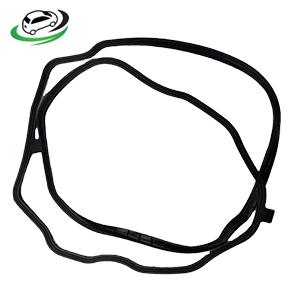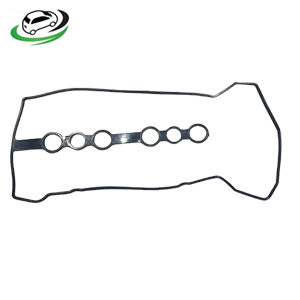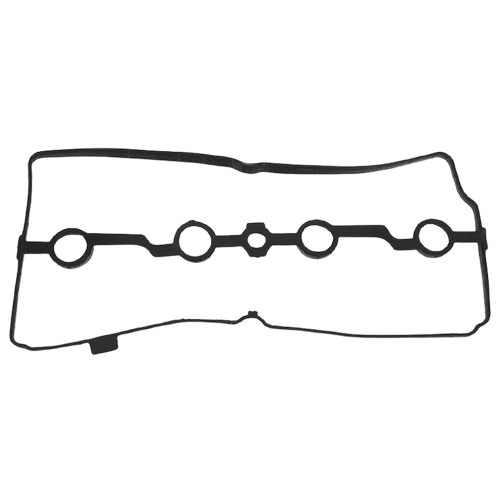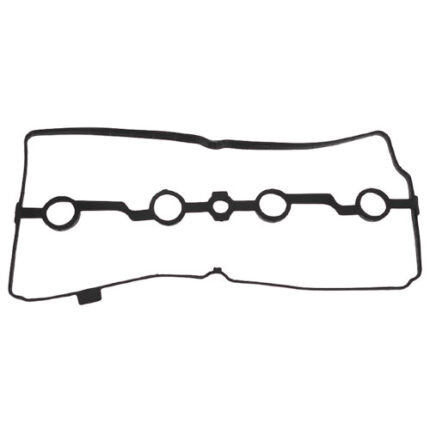-11%
Get Genuine Top Cover Gasket For MR16DDT / MR18DE / MR20DE Engines in Kenya
Rubber gaskets are essential components used in a variety of industries to create a seal between two surfaces, preventing the passage of liquids, gases, or other contaminants. These gaskets are prized for their flexibility, durability, and ability to create airtight and watertight seals. In the context of automotive, industrial, and household applications, rubber gaskets play a crucial role in ensuring the proper functioning and longevity of machinery and devices.
Function and Importance
Rubber gaskets serve several important functions:
- Sealing: They provide a seal between two mating surfaces to prevent leaks. This is critical in automotive engines, plumbing systems, and industrial machinery where fluid or gas leakage can lead to malfunction or safety hazards.
- Vibration Dampening: Rubber gaskets can absorb vibrations, reducing noise and wear on components. This is especially useful in automotive and industrial applications.
- Compensation for Irregularities: They can compensate for minor surface imperfections, ensuring a tight seal even on uneven surfaces.
- Chemical Resistance: Depending on the type of rubber, these gaskets can resist oils, fuels, and various chemicals, making them suitable for harsh environments.
Types of Rubber Materials
Different types of rubber materials are used to manufacture gaskets, each with unique properties suited to specific applications:
- Natural Rubber (NR): Known for its excellent elasticity and tensile strength, natural rubber is used in applications requiring a high degree of flexibility.
- Nitrile Rubber (NBR): This synthetic rubber is highly resistant to oils, fuels, and other chemicals, making it ideal for automotive and industrial applications.
- Silicone Rubber: Silicone gaskets can withstand extreme temperatures, from very high to very low, making them suitable for automotive engines and electrical enclosures.
- EPDM Rubber: Ethylene Propylene Diene Monomer (EPDM) is resistant to weathering, ozone, and UV exposure, making it ideal for outdoor applications and automotive weather seals.
- Neoprene Rubber: Known for its moderate resistance to oils and weathering, neoprene is used in a wide range of applications, including refrigeration and automotive systems.
- Viton Rubber: This type of rubber offers excellent chemical resistance and high-temperature stability, used in aerospace, automotive, and industrial applications.
Common Applications
Rubber gaskets are ubiquitous in various industries:
- Automotive: Used in engines, transmissions, fuel systems, and exhaust systems to prevent leaks and withstand harsh conditions.
- Plumbing: Ensures watertight seals in pipes, faucets, and valves, preventing leaks and water damage.
- Industrial Machinery: Seals in pumps, compressors, and other machinery to prevent fluid and gas leaks.
- Electronics: Provides seals in enclosures to protect sensitive components from dust, moisture, and contaminants.
- Household Appliances: Used in refrigerators, washing machines, and dishwashers to ensure airtight and watertight seals.
Maintenance and Replacement
Proper maintenance of rubber gaskets is essential to ensure their longevity and effectiveness:
- Regular Inspection: Periodically check gaskets for signs of wear, such as cracks, hardening, or deformation. Replace gaskets showing signs of deterioration.
- Cleaning: Keep gaskets and the surfaces they seal clean to ensure a proper seal. Dirt and debris can compromise gasket performance.
- Lubrication: In some applications, lubricating the gasket can help maintain its flexibility and prevent drying out or cracking. Use lubricants compatible with the gasket material.
- Correct Installation: Ensure gaskets are properly installed without over-tightening bolts or connectors, which can deform the gasket and compromise the seal.
Follow us on Facebook for more parts.




